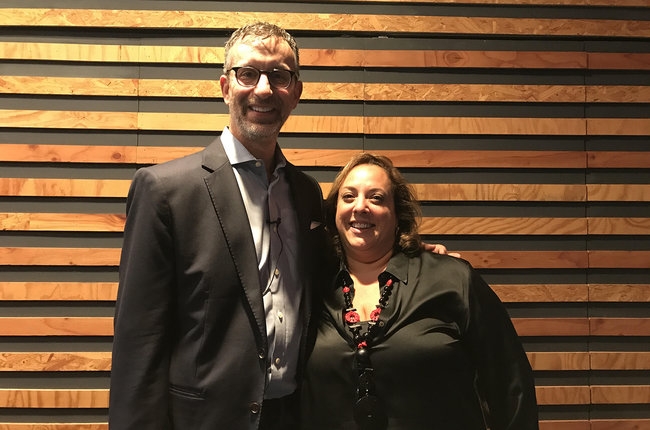The National Music Publishers Assn., the Digital Media Assn. and various songwriter and record label groups are negotiating legislation that they hope will solve the mechanical licensing problems that have plagued digital music services, while hopefully achieving higher rates for music publishers and songwriters.
It's a proposed law that will create a mechanism and a new entity that will issue and oversee a blanket mechanical license for digital music services and record labels.
That news came out of the monthly meeting of the Assn. of Independent Music Publishers, where NMPA president and CEO David Israelite was the guest speaker. He was scheduled to lay out the parameters of the legislation once again today in Nashville at that city’s AIMP meeting, too.
While music publishers can hope for pie in the sky legislation that would abolish the consent decrees and the compulsory license, Israelite says such a bill would never pass, considering it would be opposed by corporate giants like Google, Facebook, the MIC Coalition and the National Assn. of Broadcasters.
Consequently, Israelite said, “I want a consensus bill, one that is negotiated by our community, including publishers and songwriters, the record labels and artists, DiMA and the broadcasters,” and other organizations impacted by music licensing, including the broad group of general licensing entities that represent such businesses as hotels and bars.
The proposed legislation would be sponsored by Congressman Doug Collins (R-Ga) in the House, and in the Sentate by Senator Orrin Hatch (R-UT) and Senator Lamar Alexander (R-TX). The songwriter organizations involved in negotiating the legislation include the National Songwriters Assn. International (NSAI), Songwriters of North America (SONA), Council of Music Creators (CMC), ASCAP (American Society of Composers, Authors and Publishers), BMI (Broadcast Music Inc.) and Music Answers.
Currently, “most of the conversation involves the licensing process, not how much licensees are paying,” Israelite said. “I believe the value of the song is more important than the process.”
What would this proposed legislation do? For one, it would fix how mechanical rates are set at the Copyright Royalty Board. "Today, the 801 B standard, which consists of a four-part test, is how the CRB judges goes about setting rates,” Israelite said. “Those standards are unfair to songwriters.”
Chapter 8 of the U.S. Copyright Law says the CRB judges should make rate determinations that: Are reasonable and consider the economic impact on copyright owners and users; Maximize availability of creative works to the public; Afford a fair return to copyright owners; Reflect the role of the copyright licensee’s cost, risk and capital investment; and Minimize any disruptive impact on the structure of the industries involved.
Instead, the proposed legislation would switch rate-setting determinations to be based on “willing buyer, willing seller," which means the CRB would have to approximate those conditions to arrive at a rate.
That’s what the publishers would get from the proposed legislation. In return, digital licensees such as Spotify, Amazon and Apple would get a streamlined licensing mechanism that would eliminate or reduce many of the problems they have in licensing today, including matching songwriters and publishers with recordings, which would ensure correct payments and reduce the risk of lawsuits for copyright infringement.
In order to accomplish that, a structure would be set up, possibly called SongExchange, which would be similar to SoundExchange but it would have publishers pool their song information. That way, each digital service doesn’t have to match every recording in its service to every songwriter and publisher.
“Now, if Spotify and Apple have have the same song that is unmatched and Spotify figures out who the publishers are, well, Apple never learns about it and the problem continues to exist," he said.
This organization will have immediate benefits to songwriters and publishers, Israelite added. “First, the creative community doesn’t have to pay for this structure and putting together this database; the licensees, if they want to participate, would pay the cost,” he said. “Secondly, we -- the publishers and songwriters -- would own it and run it.”
He added it will have the ability to audit licensees and those companies will have to pay for it.
The database would be transparent; this entity would publicly identify the unmatched song and any publisher would be able to go in and claim the song and, thus, the payments. Each unmatched claim would have a three-year period to allow for the song and royalties to be claimed, and if the funds are not claimed, then they would be divided by publisher marketshare based on the digital services' or record labels' payments to them.
“What I am suggesting is a paradigm change about how we think about data ownership,” Israelite said. “Now, we consider songwriter data proprietary. But this will make the data available so anybody can see which publishers have which songs.”
Israelite added that this is not yet a done deal, with some issues still to be negotiated. But the framework has been agreed upon by all parties. Further, he said it would not expand the scope of the compulsory licenses, nor will it impact any other rights. And he noted that it doesn’t solve other issues like first use licensing and video and lyric licensing, but it solves many of the mechanical licensing problems.
Moreover, if labels want to use the proposed licensing mechanism, they would have to pay full statutory rates and couldn’t use controlled composition clauses. The digital services are willing to go for this fix “because mechanical licensing is so broken,” he said.
Israelite added there are legislators in both houses of Congress who are willing to sponsor this legislation, as long as it is a consensus bill agreed by everybody. He hopes the legislation will be finalized and introduced in November so it can be passed next year. Needless to say, this legislation only impacts licensing in the United States.
“What we are talking about is a new model that has never been tried before,” Israelite said.





